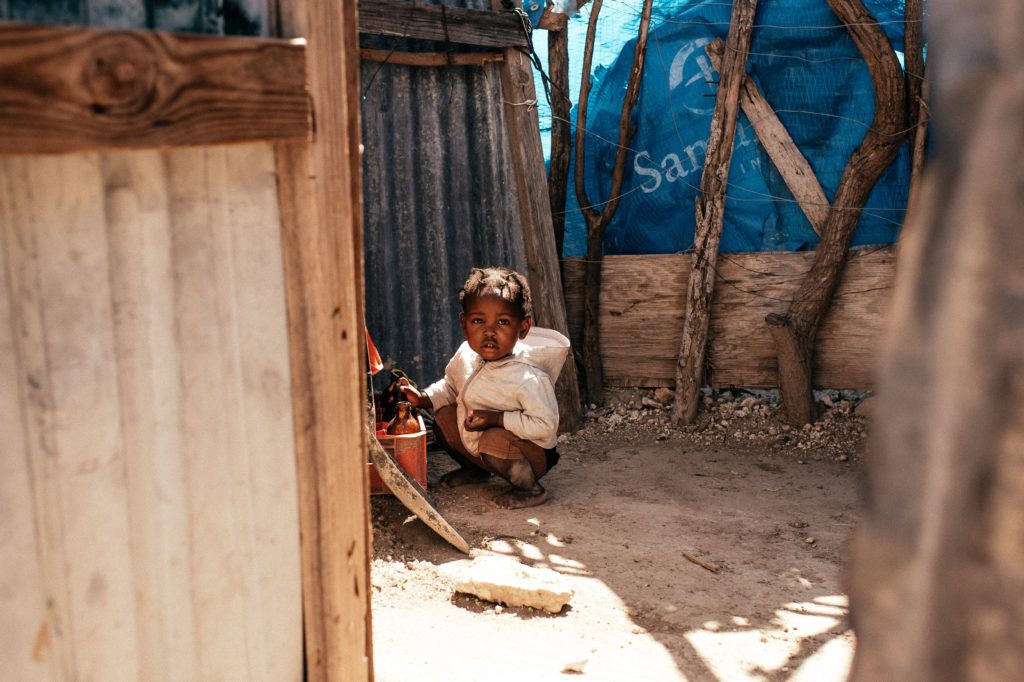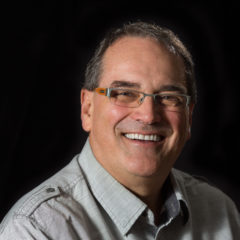How should the church respond to the call to serve the poor?
Many Fresh Expression Churches will have the opportunity to engage with people from the lower third of the socio-economic ladder, and might even feel “sent” by the Lord to do church for this population. So a good theological understanding of the churches preeminant calling to this group is important.
Social Agency and the First Church
God’s plan for the poor was instituted in the Mosaic Law, repeated by Solomon, expected by the prophets, and ushered by Christ across the covenantal lines with no amendments. It is little wonder then that the first church found an immediate bond with the tithe into poverty.
The book of Acts reveals a newly forming church that was deeply committed to lifting the poor with their ministry and finances. Acts 2 shows believers selling their property to care for the poor. Acts 3 reveals their healing ministry focusing on the poor. Acts 4 shows Barnabas and others selling property and giving generously so that there were would be no needy people among them.
The first church found an immediate bond with the tithe into poverty.
Tweet this.
Acts 5 reveals the fraud that Ananias and Sapphira attempted in the environment of generosity toward the poor. Acts 6 shows the institution of deacons who were charged to gather, purchase, and dispense food for the widows. The prevailing financial attitudes of the First Church were informed by the age-old plan for poverty.
Christine Pohl states, “Most discussions about hospitality assumed that God had loaned property and resources to hosts so they could pass them on to those in need.”
The culture of the First Church was one of contributing to the poor as an expression of their likeness of Christ. As Les Welk states, “The early Christians were so committed to caring for one another’s needs that history records their practice of fasting to save food to give to others who were more in need.”
This then became the tone and tenor of the agape feasts that we read about in II Corinthians and Jude. The most quoted communion verse is only present in scripture because Paul was frustrated at the Corinth church because they were eating their sumptuous meals while leaving the poor standing up against the wall with nothing to eat; this was an agape feast gone awry.
Interestingly, a similar thing was occurring in the agape meal in Bithynia that we read about in the book of Jude. These failures aside, the common culture of the First Church is obvious: they shared their resources with the poor as a natural and daily part their faith. It is clear that the Judaic understanding of tithing into poverty had jumped unobstructed right into the life of the young Church.
Social Agency Throughout Church History
For the first four centuries, Christianity was largely a movement among the poor. Rick Rusaw and Eric Swanson, in The Externally Focused Church use this quote from Adolf Harnack: “They formed a guild of workers to provide work for a brother. The churches were labor unions. Became a refuge for people in distress. They provided work for those who were able to work and at the same time kept hunger from those who were unfit for labor.”
In the third century, a skeptic named Celsus reported to the Romans that “few men of wisdom, few powerful or highborn figured among the Christian community. They are uninstructed, servile and ignorant who repel every wise man from the doctrine of their faith and invite only the ignorant and vulgar,” (taken from Michael Green, Evangelism in the Early Church).
The church of Christ had become a movement of the poor reaching the poor, and the poor lifting the poor. Thus, it was left to the poor to propagate the ongoing culture of tithing into poverty. Then something happened. The era of Constantine changed the tone of the Church from identifying with the poor as its central tenet. While benevolence groups like the Franciscans, the Poor Claire’s, the Salvation Army, the Mother Teresa’s, and the Mark Buntain’s have distinguished themselves through the ages as champions of the poor, the theology of tithing into poverty has drifted into obscurity.
We now find ourselves in a day when our only assistance for the poor is compassion giving, which in many cases is akin to tipping. That is quite different from God’s call to restore justice to the poor by funding it with the premier portion of the tithe. Responding to the poor is not about compassion; it is about justice. It is not about tipping; it is about tithing. The Church lost a lot when God’s age-old plan slipped away from us.
Today it seems our only assistance for the poor is compassion giving, which in many cases is akin to tipping.
Tweet this.
Implications of the Pentecostal Movement
Pentecost has always been closely related to poverty alleviation.
Like the first Pentecostal outpouring in the book of Acts, the Pentecostal upsurges in the past two centuries have been inextricably connected to poverty alleviation. The Great Awakening occurred in the environment of John Wesley and his Strangers Friend Society, who took Christians into London’s deep poverty to make friends out of vagrants in the name of Christ.
Wesleyans held an unusually sharp focus on the poor, and it was to that group that the early primings of modern Pentecost rained down. In similar fashion in 1906, during a time when numerous Christian groups assembled at the Azusa Street Mission in Los Angeles to serve the poor, the Pentecostal revival flooded upon them like a torrent.
It was such a great outpouring that entire denominations were born almost overnight and Christian fervor exploded to new heights. We cannot ignore the fact that the outpouring came, like it had before, as people gathered to alleviate poverty in Christ’s name.
On a personal note, my son works on skid row in Los Angeles.
Last year my wife and I went to visit him for the first time since he moved there. After dropping him off at work and heading for the airport I took a wrong turn and drove right by the sign that marked where the Azusa Street Mission used to be. Every Pentecostal believer needs to drive by that location.
It is not possible to grasp the meaning of American Pentecostalism until one sees where it was born. The sidewalks near that Azusa site are still lined with the worst wreckages of humanity found in America; they are comparable to any slum in the world. Tents and mattresses line the streets, and people are literally piled on top of one another. Each block reveals hundreds upon hundreds of homeless addicts and ruined people.
And right in the middle of that human squalor stands the sign marking the historic Azusa Street Mission and the birthplace of Pentecostalism. The backdrop behind our AG heritage is a very sore one, but it reveals something important about our call and the reason for Pentecost’s power being poured upon us.
To sanitize Pentecost is to wholly misunderstand Pentecost. To put Pentecost into middle class America is to change the meaning altogether.
God was intentional about where and when He poured out His Spirit upon us; the Azusa outpouring was validating the activity of poverty alleviation. This validation occurred again twenty years later during the birth of the Four Square denomination. In the proximity of the Great Depression, Aimee Semple McPhearson’s church was pouring more money into poverty in Los Angeles than the U.S. government.
Again God responded and caused them to thrive into a denominational movement. To ignore the backdrops of these Pentecostal outpourings is to misunderstand Pentecost. I am concerned that American Pentecostalism has reduced the Spirit’s work to altar experiences at the end of Sunday services rather than its original intent of empowering believers to respond to the broken people in our society. This criticism is even more valid once one is reminded of the place and time of the first modern Pentecostal outpourings. Perhaps we Pentecostals should see the timing of our “blessing” as our “call” and put our Spirit gifts back to work on the streets with the poor.
Social Agency and the Present-Day Church
The American Church does not see itself as a serious social agent in our nation.
In fact, the large portion of the Church has become ingrown and inward focused; we are not poised to direct our human and financial resources toward the growing social needs of our country. Wonsuk Ma states, “The overriding sense among world leaders after the 2010 Lausanne Congress in Cape Town is that the American Church, including the Pentecostal groups, are more affected by the prosperity gospel than they realize.”
It is time to consider becoming a social agent for the poor in our cities.
Tweet this.
The theology of tithing into poverty has been eclipsed by a convenient and comfortable faith. However, if the Church began to see itself as responsible for the social lift of the poor, then rediscovering the theology for funding it would not be far behind. The Early Church was the primary social agent for the poor; they happily stepped into that void in the likeness of Christ.
Taking on that role gave the early believers immediate significance and relevance. Perhaps it is time to consider becoming a social agent for the poor in our cities.
The Church in America would do well to listen to Christian leaders from the other parts of the world where missional networks are already popping up, however, given our recent prosperity idolatries, this might be easier said than done.
Vinay Samuel states, “The next decade does not look good for the Church in America. It will be like a patchwork quilt in which some will turnaround, but most will not. Consumerism and the prosperity gospel have left the money people extremely shallow, and they will never tolerate all the losses associated with transitioning a church to a ‘Mission-as-Transformation’ group.”
Despite that bleak forecast, some churches will become social agents for the poor and in so doing will forge an important turnaround that gives their group a larger future. Every church that becomes serious about the theology of lifting the poor will also need to become serious about the theology that funds it—tithe into poverty.
This should be of particular interest to every Fresh Expression of the church.


